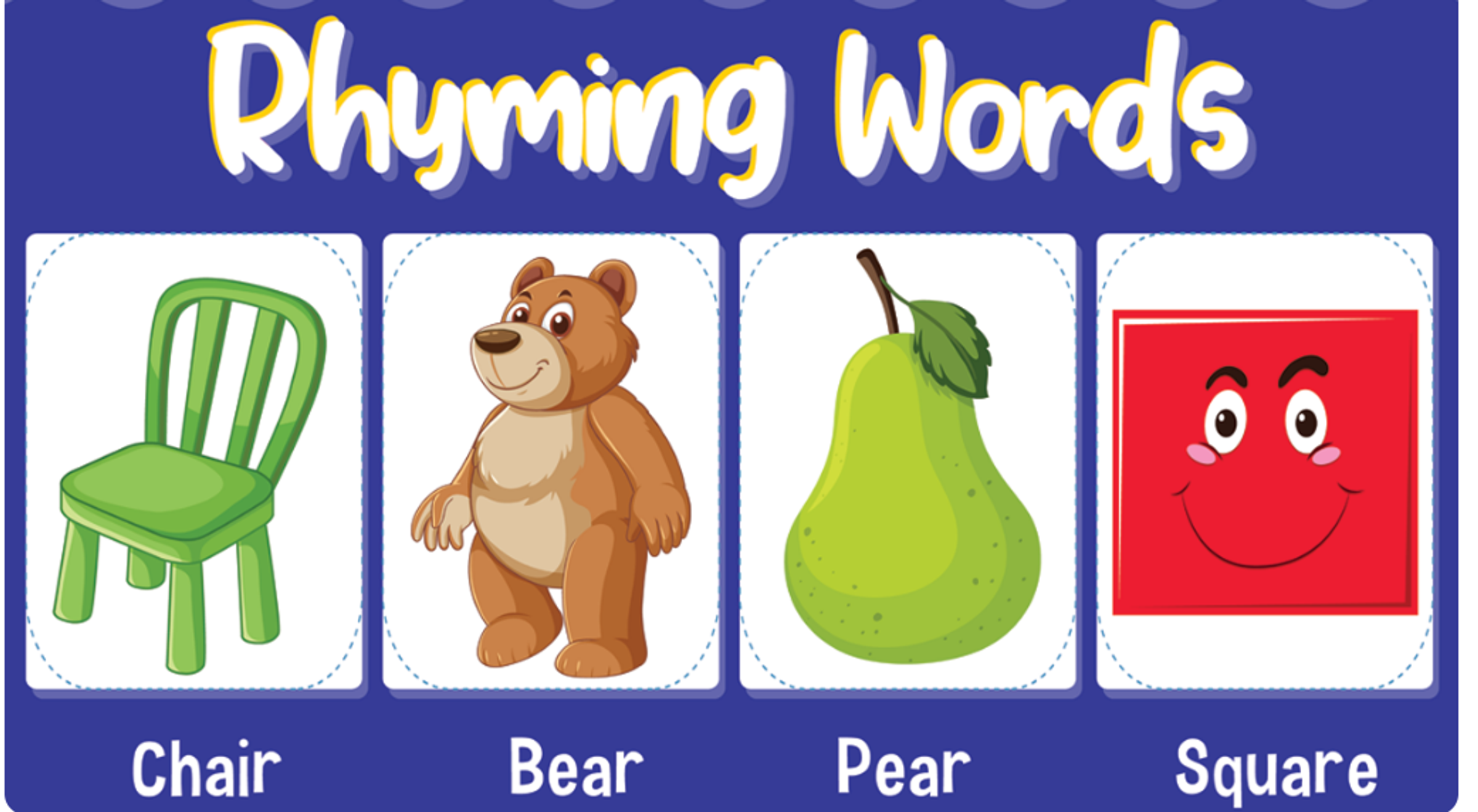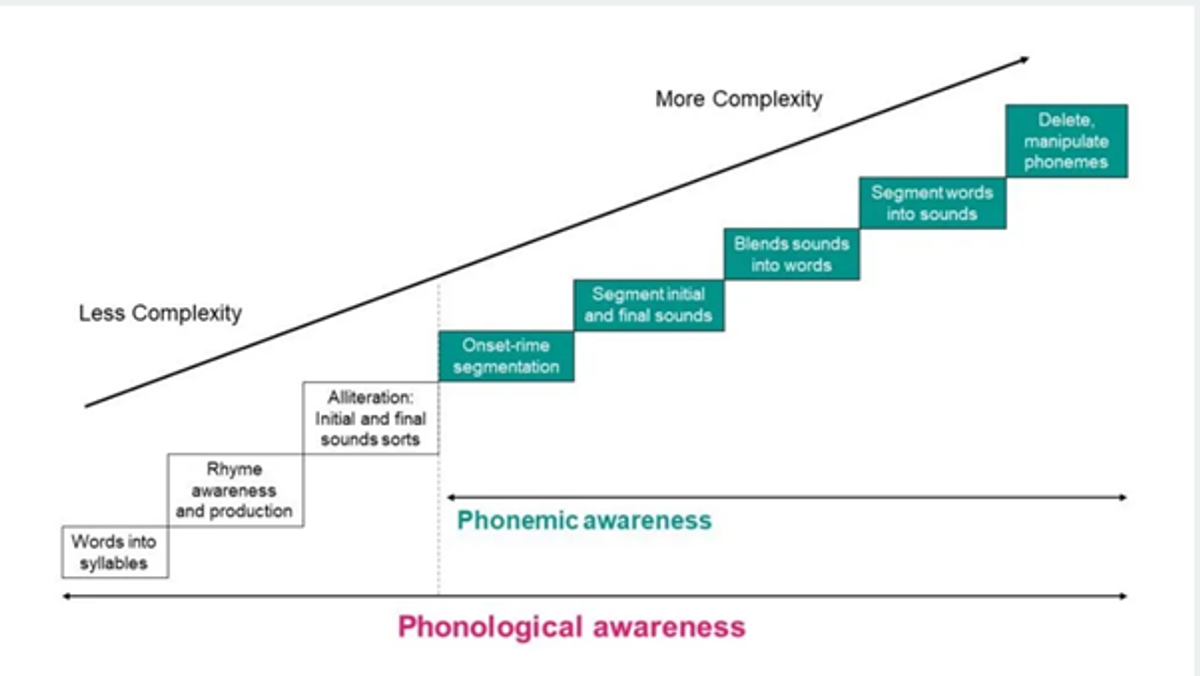Literacy

Why is rhyming important for your child's development?
Learning how to identify and produce rhyming words is an important part of a child’s Phonological Awareness journey ( see image below). Rhyming helps babies and children learn about words, sounds and language formation. Hearing and using rhyme, rhythm and repetition helps children develop early literacy skills. The repetition of words, ideas and skills is important for early brain development, as it creates secure foundations for early learning. Using rhyme, rhythm and repetition in song, while reading or even to make up your own rhymes, is great fun for babies and children. Rhyming lets children learn about sound and have fun with words.
What are the language benefits of rhyming with children?
Talking about words that rhyme can help children recognise sounds in words.
Spotting similar sounds in words helps expand vocabulary and teaches children how language works.
Research has found that being familiar with nursery rhymes and the words within them can help children learn to read.
Understanding the patterns of rhyming helps children understand that words that share common sounds often share common letters.
You can play this game when you're out and about too. Use the world around you for inspiration.
5 more rhyming activities for children
1. Build a sentence with rhyming words
How many rhyming words can your child fit into one sentence?
Help your child build a sentence with a set of rhyming words, such as "the cat sat on the mat". Try adding rhyming words to your sentence together for a fun challenge.
2. Sing nursery rhymes or reading rhyming books such as Dr Suess
Nursery rhymes are an excellent way to begin teaching your child this early phonological awareness skill.
Find some nursery rhyme inspiration for you and your child.
3. Changing nursery rhyme words
Changing the words to a favourite nursery rhyme is a fun way for your child to experiment with new rhyming words.
Find out more about this fun rhyming activity.
4. Rhyming I spy
Instead of looking for words beginning with a certain sound, ask your child to find something in the room that rhymes with another word.
This is a great way to practise recognising those important sounds in words.
5. Category rhyming words
Pick a topic with your child, such as holidays or school. Have fun together finding rhyming words for different words in that topic.
Sarah Watkins
Acting Assistant Principal/Literacy Specialist

